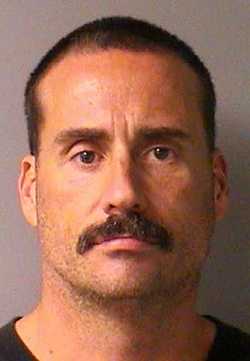State lawmakers are at odds over components included in the budget bill last week that would take the teeth out of California’s 45-year-old public records law.
Last week, SB 71 and AB 76 were put into the 2013-14 budget bill as last-minute budget riders, with little public notice, comment or hearing.
The bills contain provisions that would make it optional for local agencies, cities and counties to abide by the tenets of the California Public Records Act.
Lawmakers in the Democratic supermajority have justified the the action as a cost-saving one, based on the state’s need to reimburse local agencies for fulfilling public records act requests.
The changes would allow agencies to bypass a number of requirements when responding to public records act requests.
Those requirements, according to Californians Aware, include:
- Responding to a request within 10 days regarding whether or not records will be released;
- Providing a notice within 10 days of a request that an additional 14 days is needed, with the justification for that extension;
- Providing electronic documents in the format of the requester’s choice;
- Specifying a reason or legal justification for denying a request;
- Assisting the requester in more effectively framing their requests.
Agencies would be encouraged to follow the California Public Records Act as “best practices,” but wouldn’t be legally required to do so.
Since the last-minute budget amendments came to light, open government groups, publications and citizens across the state have spoken out about the damage to transparency that the provisions could bring.
Californians Aware, the First Amendment Coalition, the Sunlight Foundation and the California Newspaper Publishers Association have led efforts to lobby legislators to throw out SB 71’s provisions that damage the CPRA.
The effort appeared to have succeeded on Wednesday, as Assembly Speaker John A. Pérez (D-Los Angeles) said that SB 71 is being amended to include all of the components of the general government trailer bill contained in AB 76, except for the changes regarding the CPRA and Local Agency Ethics Mandates.
Those changes, according to Pérez, return that part of the budget document to what was originally included in the Assembly’s version.
“To be clear, this means that the California Public Records Act will remain intact without any changes as part of the budget – consistent with the Assembly’s original action,” Speaker Pérez said.
Perez said SB 71 will be taken up on the Assembly Floor Thursday morning.
However, within hours Senate President Pro Tem Darrell Steinberg (D -Sacramento) and Sen. Mark Leno (D -San Francisco) – chair of the Senate Budget and Fiscal Review Committee – said a constitutional amendment will be introduced in the state Senate on Thursday.
The proposed amendment will require permanent restoration of all California Public Records Act mandates in the state budget, and require that all local government entities pay for those services of providing public access to local government records, they said.
“The democratic principle of transparency deserves more than a temporary fix. It deserves a permanent solution; a constitutional solution,” Steinberg and Leno said in a joint statement. “The question is whether or not state taxpayers should foot the bill for what local governments should be doing as a matter of course. The conditions of local government transparency should not require a state subsidy.”
“Rather than row back, we should step forward. Senate Democrats will present a Constitutional Amendment for the Legislature’s consideration, with a view to putting the issue before the voters on the June 2014 statewide ballot,” the statement added.
They also indicated they won’t follow the course Pérez had suggested earlier in the day.
“In the interim, the State Senate will not revisit the issues in Assembly Bill 76, unless there is evidence that locally-elected officials aren’t complying with the statutes that they were elected and expected to uphold,” the statement concluded.
Late Wednesday afternoon, Gov. Jerry Brown issued a statement that signaled support for the Democrats’ plan to put the matter before voters.
“We all agree that Californians have a right to know and should continue to have prompt access to public records and I support enshrining these protections in California's constitution,” Brown said.
The California Public Records Act was signed in 1968 by then-Gov. Ronald Reagan.
Reagan’s signing of the legislation culminated “a 15-year-long effort to create a general records law for California, according to a California Attorney General’s summary of the law written in 2004.
As the summary points out, the California Public Records Act’s fundamental precept “is that governmental records shall be disclosed to the public, upon request, unless there is a specific reason not to do so,” but allows specific exemptions to disclosure and provides a general balancing test allowing agencies to withhold records from disclosure if they can prove “that the public interest in nondisclosure clearly outweighs the public interest in disclosure.”
Email Elizabeth Larson at This email address is being protected from spambots. You need JavaScript enabled to view it. . Follow her on Twitter, @ERLarson, or Lake County News, @LakeCoNews.















